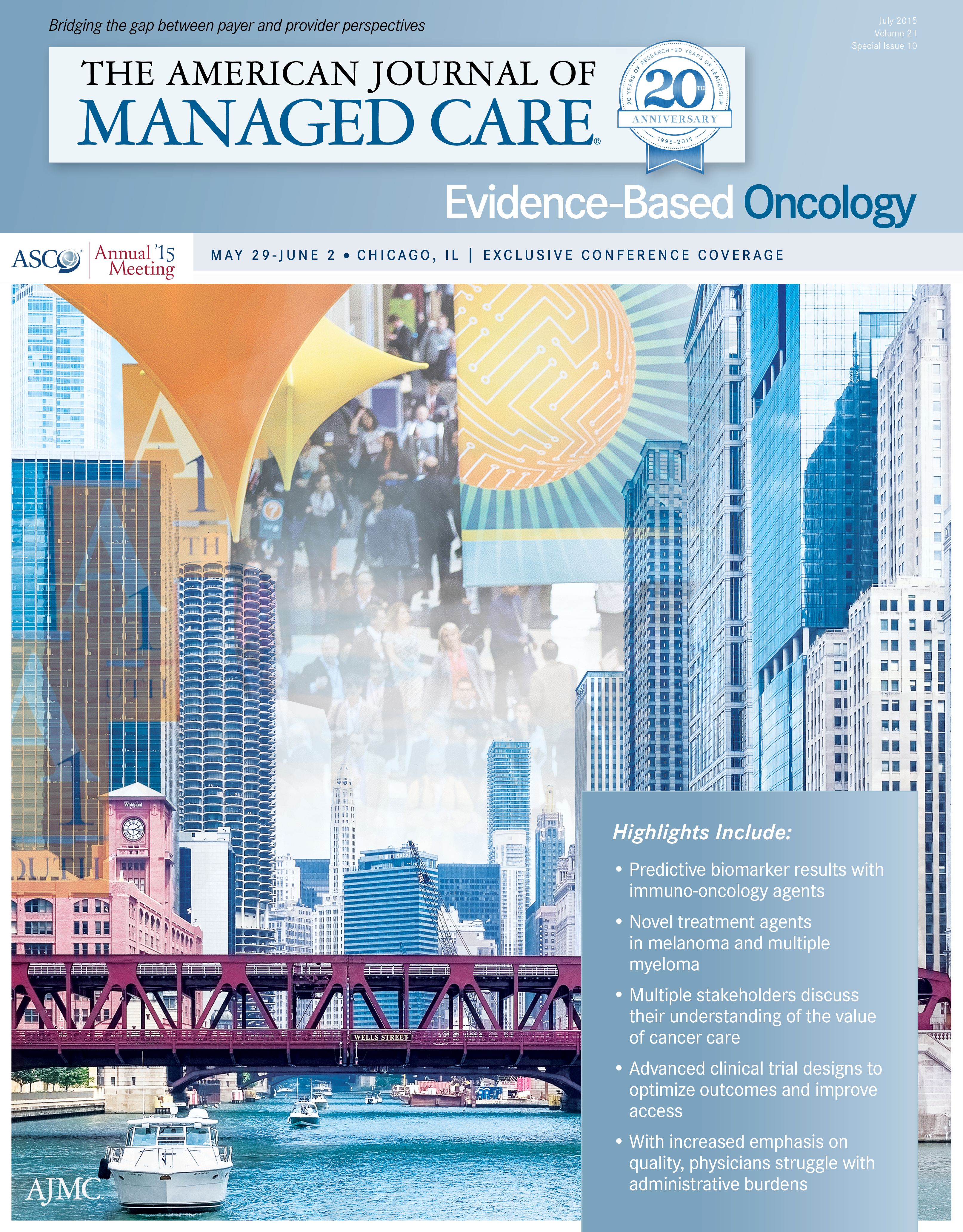- Center on Health Equity & Access
- Clinical
- Health Care Cost
- Health Care Delivery
- Insurance
- Policy
- Technology
- Value-Based Care
Phase 3 RECOURSE Trial Holds Promise for Colorectal Cancer
A poster presented at the 2015 annual meeting of the American Society of Clinical Oncology shared encouraging phase 3 survival data from the RECOURSE trial, after evaluating specific geographic subgroups.
Colorectal cancer, with a 5-year survival of 64.9%, is projected to result in 8.4% of all cancer deaths in 2015.1 The 5-year survival for patients with localized disease is even better, at 90.1%. Standard of care for patients with metastatic colorectal cancer (mCRC) has evolved over the years. Treatment, which was restricted to the thymidylate synthase inhibitor 5-fluorouracil (5-FU) in early years, now includes folinic acid along with irinotecan (FOLFIRI) or oxaliplatin (FOLFOX). Additionally, presence of a wild-type RAS would mean inclusion of either a vascular endothelial growth factor inhibitor or an epidermal growth factor inhibitor.2,3
A poster presented at the annual meeting of the American Society of Clinical Oncology, results of which were also published in the New England Journal of Medicine,3 showed phase 3 data from the RECOURSE trial after evaluating specific geographic subgroups: United States, Europe, and Japan.4 The trial evaluated the oral drug TAS-102, a combination of trifluridine and tipiracil hydrochloride, designed to maintain appropriate plasma levels of the active drug trifluridine. The phase 2 study of TAS-102, conducted in 169 Japanese patients with metastatic colorectal cancer who were refractory to 5-FU, irinotecan, and oxaliplatin, improved median overall survival (OS) from 6.6 months in the placebo group to 9.0 months in the treated group.
The phase 3 study extended the trial to a global population of 768 patients with mCRC who were either refractory to antitumor agents or had experienced significant adverse events with the treatment. Of the 768 patients, 99 in the United States, 403 in the European Union, and 266 in Japan were randomized to receive TAS-102 or placebo.
Table. Overall Survival (OS): Geographic Comparison
United States
European Union
Japan
TAS-102
Placebo
TAS-102
Placebo
TAS-102
Placebo
Median OS
(months)
6.5
4.3
6.8
4.9
7.8
6.7
As shown in the Table, OS improved in mCRC patients in the TAS-102 arm across all 3 geographical subgroups that were evaluated. Overall, the incidence of adverse events (AEs), serious AEs, and hospitalizations was similar across the subpopulations treated with TAS-102. The authors concluded that TAS-102 had an acceptable safety profile, and offered OS and progression-free survival benefits to mCRC patients across the geographically divided cohorts.References
http://seer.cancer.gov/statfacts/html/colorect.html.
1. SEER Stat fact sheets: colon and rectum cancer. National Cancer Institute website. Accessed June 29, 2015.
2. Stintzing S. Management of colorectal cancer. F1000Prime Rep. 2014;6:108-121.
3. Mayer RJ, Van Cutsem E, Falcone A, et al. Randomized trial of TAS-102 for refractory metastatic colorectal cancer. N Engl J Med. 2015;372:1909-1919.
4. Ohtsu A, Yoshino T, Wahba MM, et al. Phase 3 RECOURSE trial of TAS-102 versus placebo with best supportive care in patients with metastatic colorectal cancer: Geographic subgroups. J Clin Oncol. 2015;33(suppl): abstract 3564.


